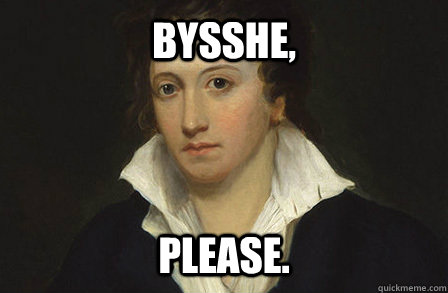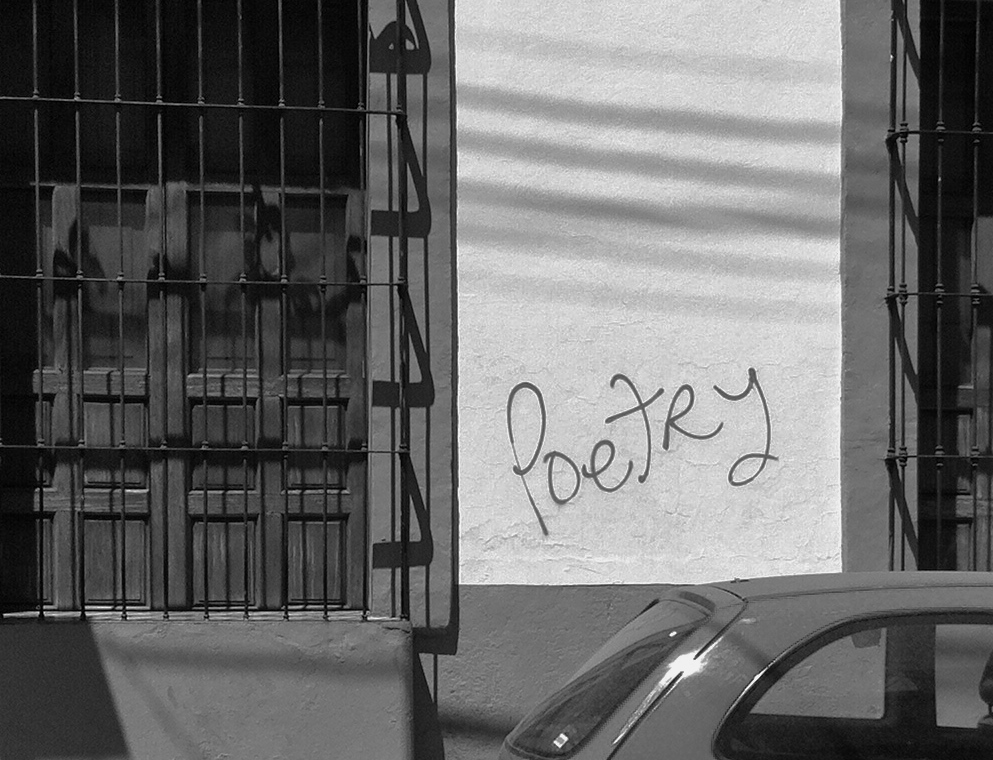I am not a well-recognized poet. But like most very minorly-recognized poets, I’ve worked my butt off over the years to publish the handful of stuff I have out there. While poetry is certainly an avocation for me at this point, over the years I’ve been approached by my fair share of aspiring poets who want to know how to get started publishing their own work.
My response is typically the same, so I’ve decided to write a series of posts called “How To Get Poetry Published.” This is part 1. Here is part 2.
Read Good Poets Who Are Alive Today
I’m continually surprised by how many people consider themselves poets who haven’t read a single poem written by someone who is still alive. When I ask them who their favorite poet is, most unpublished poets cite someone like Walt Whitman or William Carlos Williams. And while these are great poets, if you aren’t reading your contemporaries, you’re simply not part of the current conversation.
Think about it this way: would you write a newspaper article like they did 50, or 100, or 150 years ago? Why not? Because the language has changed. The conventions have changed. Everything has changed.
Poetry is no different. It is a living, breathing genre just like all forms of writing. There are more poems being published today in the hundreds of contemporary literary magazines than were published in entire centuries past. New collections of poetry come out every year by contemporary poets. A simple search for “poetry” in Amazon currently returns 60,000 results, many of which are collections published in the past 10-20 years.
If you want to learn to be a poet worthy of publication by your peers, then you need to read the work of those peers. You need to sample all the different poetical styles available today and to hone your own work to respond to those styles.
The other thing to keep in mind is that the only reason poetry is still alive today is because poets are keeping it alive. If you aren’t supporting your contemporaries, why should they support you?
Hone Your Craft: No One Is Automatically Good
There’s also a misperception amongst many poets who have never done a poetry workshop (see below) or read widely that you can get good at poetry simply by wanting to. Like anything else, poetry writing is a skill. If you want to learn to be a world-class runner, working by yourself based on what you think you should do is probably not going to get you anywhere. You need a running coach. Proper equipment. Maybe even a team. You probably need to start with short jogs and then work your way up to longer runs as you get in better shape.
Poetry has basic mechanics just like any other activity. These include:
- Meter
- Imagery
- Simile / Metaphor
- Narrative
- Irony
- Point-of-View
- Line Breaks
- Stanza Breaks
If you want to be good at poetry, you need to get familiar with the basics. You probably also need to master several of them. This means you probably need to write a lot of stuff that isn’t very good and then refine that stuff over several years before you get any good.
To learn these conventions, I always recommend two books that have been the most useful to me over the years: The Poet’s Companion: A Guide to the Pleasures of Writing Poetry by Kim Addonizio and Dorianne Laux and The Triggering Town: Lectures and Essays on Poetry and Writing by Richard Hugo. Both books are no-nonsense introductions to contemporary poetry writing. You won’t learn how to write the ultimate sonnet from these books, but you will learn how successful contemporary poets think and write.
“But what about Emily Dickinson, she–“

NO. Just, no. If you want to be Emily Dickinson, then bury your poems out in your backyard and hope someone finds them someday. If you want your work to be read, you need to improve like the rest of us.
Learn to Take Criticism and to Be Your Own Worst Critic
The other thing I’ve noticed over the years is that many aspiring poets have never workshopped their work. A poetry workshop is a circle of people dedicated to poetry writing who get together to critique everyone’s work to help each other improve. Putting together a poetry workshop is simple:
- Get together some friends who want to write better poetry
- Write poems and exchange them with each other
- Everyone reads everyone else’s work and writes comments
- Meet to discuss each poem in turn
- IMPORTANT: The poet isn’t allowed to talk when his or her poem is being critiqued
If nothing else, poetry workshops teach you what an audience gets (or fails to get) from your work. Poetry is a written medium. If the metaphor you thought was completely clear was lost on everyone in your workshop, you might want to reconsider it. If the images you thought were so vibrant are actually falling flat, maybe you need to use fewer adjectives and more good, solid nouns.
More than anything, however, you have to doubt yourself to be a good poet. If you read your own work and think “wow, this is great,” you’re headed in the wrong direction. Trust me. If you read your own work and think “wow, this sucks! I DESPERATELY need to make this better,” you’re on the right track. Good poets revise their poems dozens, or sometimes hundreds, of times before they’re satisfied with them.
Consider Taking Some Classes or Even Getting a Degree in Poetry
If all of this sounds like a lot of work: it is. And as with all difficult-to-master activities, it’s nice to get some help. Many published poets, myself included, are products of M.F.A. programs. Though there have been a lot of debates in the poetry community over whether or not you need an M.F.A. to be successful as a poet, it’s kind of like debating whether you need classes in physics to be Stephen Hawking. There probably are poets who can just figure out everything on their own without any mentoring or education. Chances are, you are not one of them. I certainly am not.
‘How To Get Poetry Published’?: You Haven’t Said a Single Word About Actual Publishing
If you’ve read this far, you’ve probably noticed that I haven’t said a single thing about actually publishing your work. I’m not trying to be misleading: you really need to do all the things in this post before sending your work out for publication. As I’ll tell you in Part 2 of this post, getting poetry published is even harder than writing good poetry! To have any hopes of landing some publications, you need to get to a point where your poetry is publishable, meaning that it’s as good as the poems you’re seeing in literary magazines (because you started reading those, right?).
In Part 2 of “How To Get Poetry Published,” I discuss one of the main venues for publishing poetry: literary magazines.
